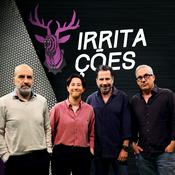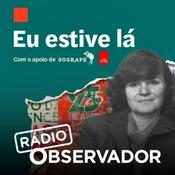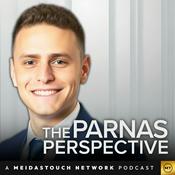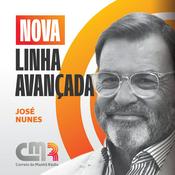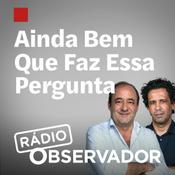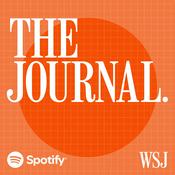860 episódios
- In this episode:
00:46 Why completing difficult tasks feels rewarding
Nature: Touponse et al.
11:34 Research Highlights
Nature: Disappearing ‘planet’ reveals a solar system’s turbulent times
Nature: Getting to the (square) root of stock-market swings
13:43 How extreme weather events could threaten malaria elimination efforts
Nature: Touponse et al.
Subscribe to Nature Briefing, an unmissable daily round-up of science news, opinion and analysis free in your inbox every weekday.
Hosted on Acast. See acast.com/privacy for more information. Briefing Chat: The canny cow that can use tools, and how babies share their microbiomes
23/1/2026 | 12minIn this episode:
00:24 How babies share their gut microbes
Nature: Sending babies to nursery completely reshapes their microbiome
05:25 First evidence of tool use in cattle
Science: No bull: This Austrian cow has learned to use tools
Subscribe to Nature Briefing, an unmissable daily round-up of science news, opinion and analysis free in your inbox every weekday.
Hosted on Acast. See acast.com/privacy for more information.- 00:46 Protein-sized superposition surpasses previous experiments
Nature: Pedalino et al.
News: Schrödinger's cat just got bigger: quantum physicists create largest ever 'superposition'
11:46 Research Highlights
Nature: Ancient pottery reveals early evidence of mathematical thinking
Nature: Gifted dogs learn new words by overhearing humans
14:11 How Trump’s second term has impacted research
Nature: US science after a year of Trump
Nature: US science in 2026: five themes that will dominate Trump’s second year
Hosted on Acast. See acast.com/privacy for more information. - In this episode:
00:40 The rock samples destined to remain on Mars
Nature: NASA won’t bring Mars samples back to Earth: this is the science that will be lost
05:24 The genetics of dogs’ droopy ears
Nature: Do their ears hang low? The genetics of dogs’ adorable floppy ears
Subscribe to Nature Briefing, an unmissable daily round-up of science news, opinion and analysis free in your inbox every weekday.
Hosted on Acast. See acast.com/privacy for more information.
Mais podcasts de Notícias
Podcasts em tendência em Notícias
Sobre Nature Podcast
The Nature Podcast brings you the best stories from the world of science each week. We cover everything from astronomy to zoology, highlighting the most exciting research from each issue of the Nature journal. We meet the scientists behind the results and provide in-depth analysis from Nature's journalists and editors. Hosted on Acast. See acast.com/privacy for more information.
Sítio Web de podcastOuve Nature Podcast, Contra-Corrente e muitos outros podcasts de todo o mundo com a aplicação radio.pt

Obtenha a aplicação gratuita radio.pt
- Guardar rádios e podcasts favoritos
- Transmissão via Wi-Fi ou Bluetooth
- Carplay & Android Audo compatìvel
- E ainda mais funções
Obtenha a aplicação gratuita radio.pt
- Guardar rádios e podcasts favoritos
- Transmissão via Wi-Fi ou Bluetooth
- Carplay & Android Audo compatìvel
- E ainda mais funções


Nature Podcast
Leia o código,
descarregue a aplicação,
ouça.
descarregue a aplicação,
ouça.








